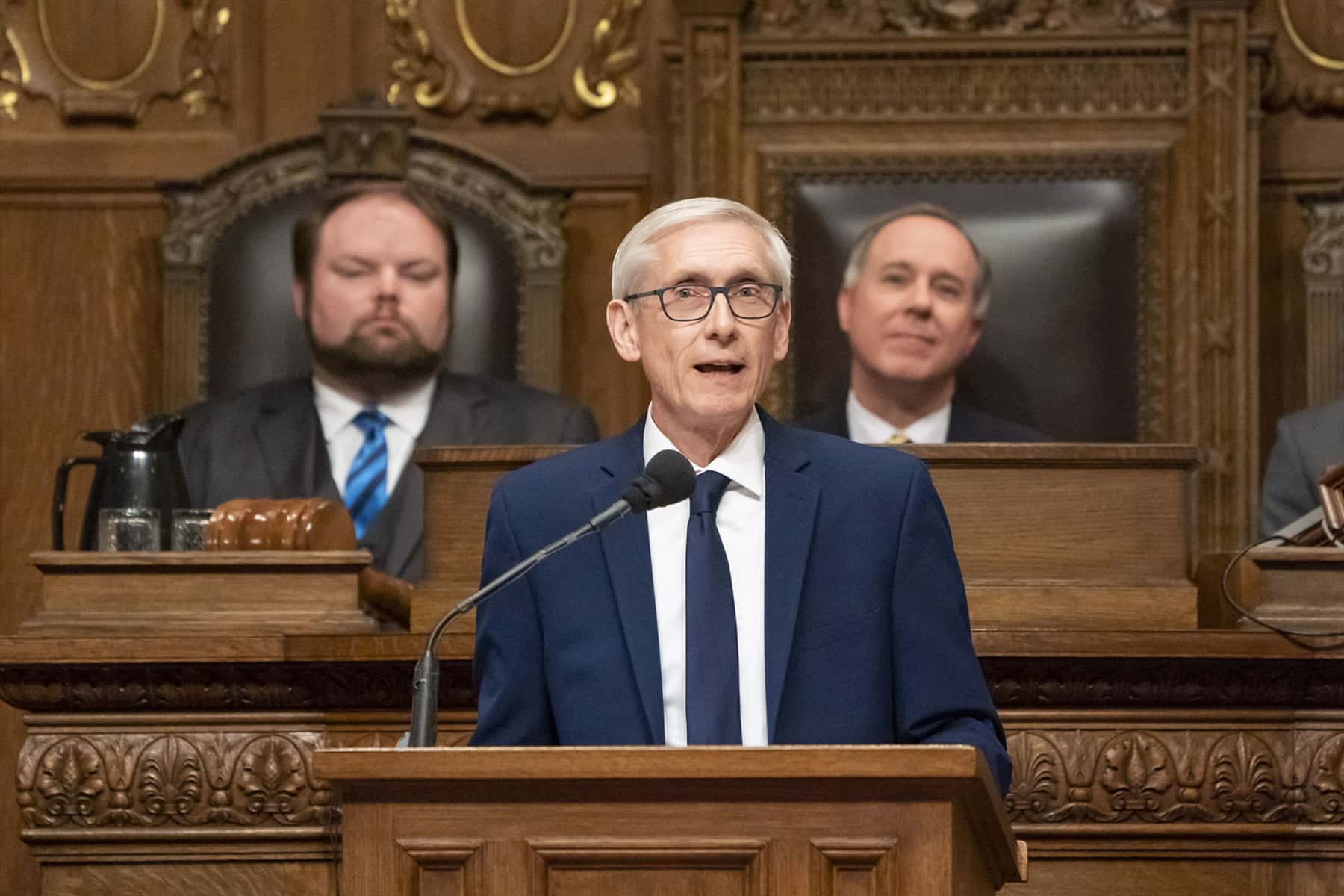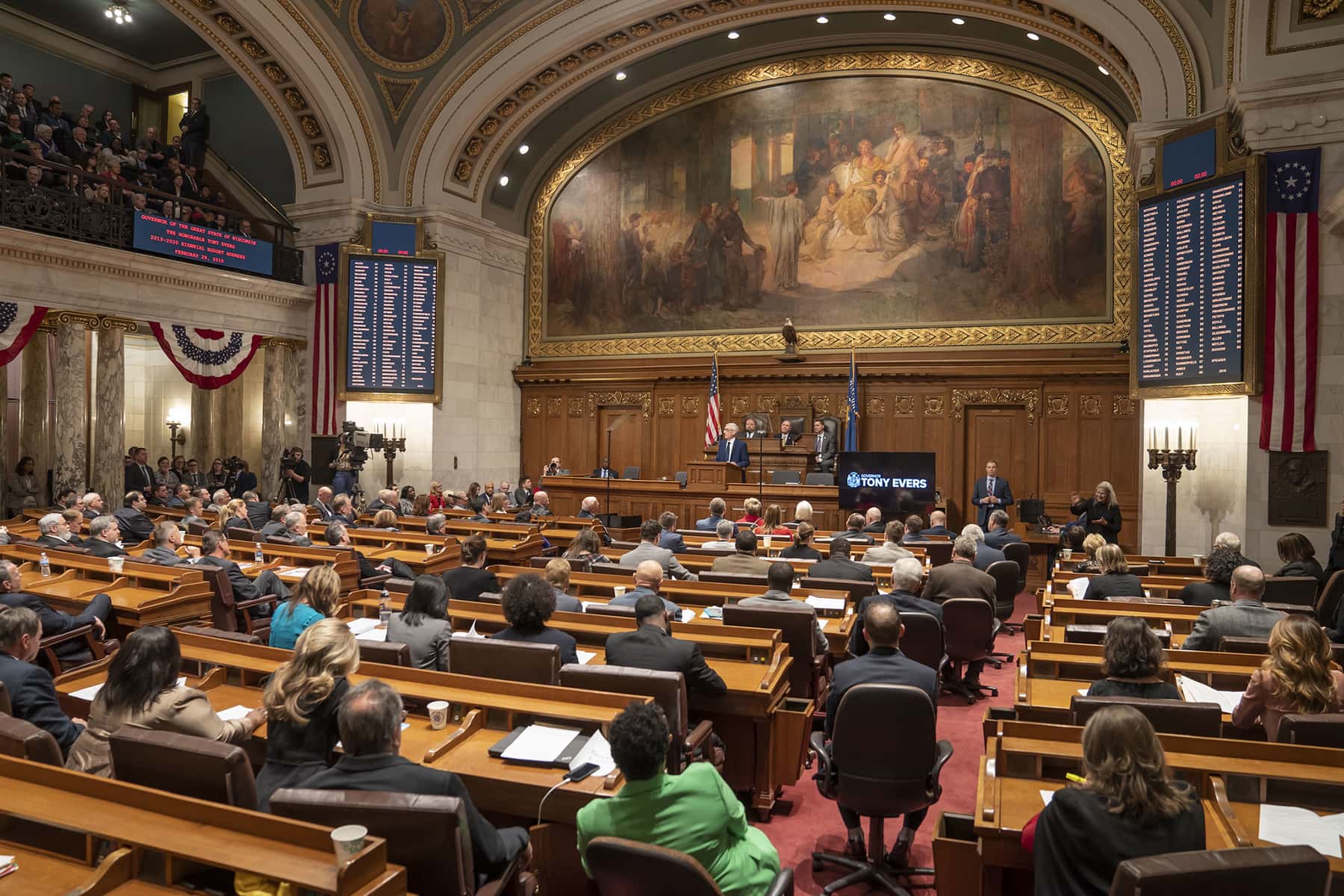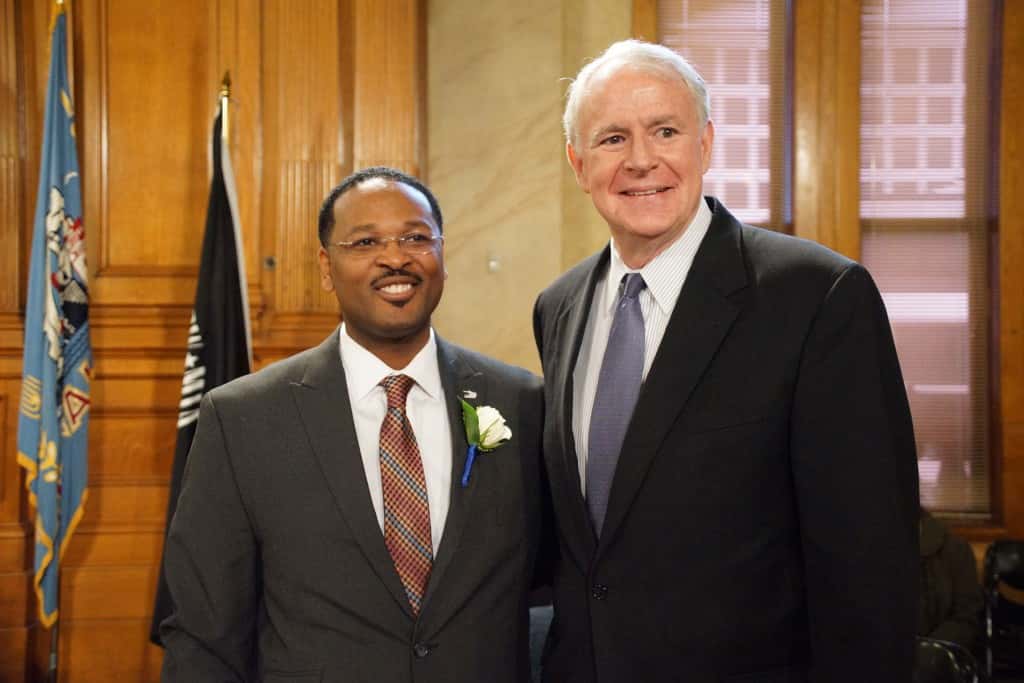
Governor Tony Evers signed the 2019-21 state biennial budget, now 2019 Wisconsin Act 9, into law with partial vetoes on July 3.
Governor Evers made 78 partial vetoes to Wisconsin’s budget, passed by the Republican-controlled Legislature. Evers decided against taking the unprecedented step of vetoing the entire budget, believing that it would have been more of the same divisiveness and petty political theatrics that the people of Wisconsin had endured for too long.
“While this budget makes critical investments in areas that were included in The People’s Budget, this is a down payment on the progress we must make in the next biennial budget,” said Governor Evers. “Vetoing this budget would have meant passing up the opportunity to provide investments in special education, the largest general school aid increase in a decade, increased revenue to fix our roads, and critical investments in broadband expansion, Wisconsin shares, child welfare, rural hospitals, and transit, among other important priorities.”
The Governor took a more moderate approach to the situation and used his broad veto powers to eliminated many provisions, including an increase of funding for K-12 schools by $65 million. He also vowed to keep up the fight for Medicaid expansion, stating that he would make it a campaign issue against Republican lawmakers in 2020.
“When I ran for this office, I said it was time for a change. And I made promises to the people of Wisconsin,” Governor Evers added. “I promised I would put people first, and that is why I am proud we were able to do as much as we did with the budget we were given. This budget delivers on many of the important promises I made to the people of Wisconsin and makes progress toward fixing our roads, supporting schools, increasing funding for healthcare, and cutting taxes for working families.”
Highlights from Gov. Evers’ 2019-21 budget include:
Healthy Communities
- In recognition of the direct care workforce shortages in the state, this budget provides over $230 million to support workers who provide direct care to Wisconsin’s most vulnerable citizens in Family Care, nursing homes, and individuals receiving personal care services.
- Makes important investments in Wisconsin’s rural healthcare providers by increasing funding by $9.9 million for the Rural Critical Care Hospital Supplement.
- Invests $14.2 million in lead testing and abatement and begins to address the issue of childhood lead poisoning.
- Provides nearly $30 million, the largest state-funded increase ever, to support programs for Wisconsin veterans.
Safe and Just Communities
- Increases the private bar rate for the Office of the State Public Defender, for the first time since 1992, from $40 per hour to $70 per hour to provide our citizens with prompt representation and save our counties money.
- Provides over 60 new full-time assistant district attorneys across the state, which is the first time the state has created any new full-time GPR-funded positions since 2007.
- Provides funding to work towards meeting the state’s obligations to close Lincoln Hills and Copper Lake schools and moving youth into the least restrictive appropriate setting as soon as practicable.
What’s Best for Kids
- Doubles state support for school mental health programs over the biennium to provide increased access to professionals to assist children in our schools in need.
- Provides nearly $330 million, the largest nominal dollar increase in state general aid since the 2005-07 biennium.
- Increases state special education categorical aid funding for the first time since 2008-09 by providing over $95 million over the biennium in additional state support.
- Through the veto process, increases per pupil state categorical aids by nearly $100 million over the biennium.
- Increases high cost transportation aid for rural districts by $1.6 million over the biennium to raise reimbursement rates to 90 percent of eligible costs.
Higher Education and Workforce
- Increases state general aid for the Wisconsin Technical College System by $25 million, the largest nominal increase since at least 1993.
- Commits over $1 billion in bonding authority, the largest nominal increase ever, to modernize aging University of Wisconsin buildings and improve learning environments, which will help the system attract and retain students, faculty, and researchers.
- Provides $45 million over the biennium to the University of Wisconsin (UW) System for capacity building initiatives, while continuing to freeze resident undergraduate tuition to keep higher education affordable and mitigate student debt.
Agriculture, Tourism, and Economic Development
- Provides $48 million throughout the biennium, the largest amount ever, to expand the Broadband Expansion Grant program to reach more underserved areas of the state.
- Recognizes that the dairy industry is a critical part of our state’s economy, which is why this budget invests $8.8 million over the biennium in a Dairy Innovation Hub at the University of Wisconsin System.
- Provides $750,000 annually for farmers to engage in best management practices under the producer led watershed protection grant program.
- Invests $100,000 to further research on chronic wasting disease in our state.
Transportation
- Provides more than $465 million overall for transportation projects across the state and makes significant progress towards sustainable funding for transportation with the largest dedication of new, ongoing revenue to the transportation fund in a generation.
- Invests more ongoing revenue than ever before in our transportation infrastructure, while at the same time maintaining bonding at our lowest level in the last 20 years.
- Invests $320 million in additional funding for our State Highway Rehabilitation program
- Provides an historic 10 percent increase ($66 million over the biennium) in available funding for general transportation aids, paid to counties, towns, villages, and cities.
- Finishes off the Zoo Interchange project as it was designed.
Tax Fairness
- Along with AB 251, a bipartisan proposal, provides $518 million in individual income tax relief in the form of income tax rate reductions targeting lower and middle income earners.
- Overall, approximately 92 percent of these income tax cuts for non-married filers will go to filers with adjusted gross income below $100,000 annually and 76 percent of tax cuts for married-joint filers will go to filers with adjusted gross income below $150,000.
- Typical middle class single filers will see an income tax reduction of approximately $136 annually while middle class married-joint filers will see a reduction of $182 annually when the tax rate reductions are fully implemented in tax year 2020.
Clean Communities
- Extends the Knowles-Nelson Stewardship program.
- Further enhances our work on addressing PFAS by providing $150,000 to develop a model to identify and prioritize sites with likely PFAS contamination and adding positions to the Department of Natural Resources.
Good Government
- Recognizes the value of our state workforce in serving the people of Wisconsin by providing almost $80 million in state funds to fund 2 percent annual general wage adjustments for most state employees.
- Provides nearly $36 million in state funds over the biennium to institute an hourly wage increase and pay progression for certain correctional officers and youth counselor positions, effective January 1, 2020.














